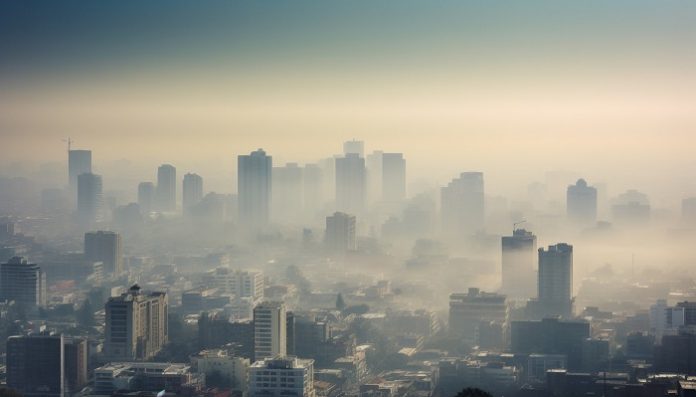The nitrogen dioxide (NO₂) levels in Mumbai’s atmosphere have reached alarming heights, posing severe health risks to its residents.
A recent report, Beyond North India: NO₂ Pollution and Health Risks in Seven Major Indian Cities, revealed that the city’s traffic emissions are the primary contributors to this toxicity.
High NO₂ Concentrations Across the City
The report by Greenpeace India highlighted that in 2023, the annual average NO₂ levels exceeded the World Health Organization (WHO) health guidelines at 22 out of 24 Continuous Ambient Air Quality Monitoring Stations (CAAQMS) across Mumbai.
Malad West recorded the highest NO₂ concentration. Bandra Kurla followed, where pollution from a roadside station near a bus depot contributed significantly.
Mazgaon and Sion experienced the worst daily NO₂ averages, surpassing the WHO guidelines on over 70% of the days in 2023.
Notably, Mazgaon faced 267 days of exposure to levels above the acceptable limit.
Traffic and Fossil Fuels Drive Pollution
The Nitrogen Dioxide (NO₂), a near-invisible toxic gas, is closely linked to urban traffic and the burning of fossil fuels. Vehicles and energy generation are the leading sources of this pollutant.
The gas severely impacts human health, particularly among children, and leads to respiratory and lung diseases.
Health Toll of NO₂ Pollution
The report estimated that Mumbai witnessed 5,400 deaths in 2023 due to high NO₂ exposure. This was the highest number among major Indian cities. Kolkata and Bengaluru followed.
Children bear the brunt of this exposure, with over 3,970 cases of pediatric asthma attributed to NO₂ pollution in Mumbai in 2015.
Continuous exposure to elevated NO₂ levels can exacerbate asthma and inflame airways. It also increases the risk of respiratory and circulatory diseases, including lung cancer and ischemic heart disease.
Urgent Need for Action
Overwhelming scientific evidence links NO₂ exposure to a wide range of health issues. These include impaired lung development in children and increased mortality risks.
Mumbai’s consistently congested roads and reliance on fossil fuels call for immediate intervention to curb emissions and protect public health.
As reported by timesofindia.indiatimes.com, by addressing traffic congestion and transitioning to cleaner energy sources, the city can combat this invisible threat and ensure a healthier future for its residents.
































